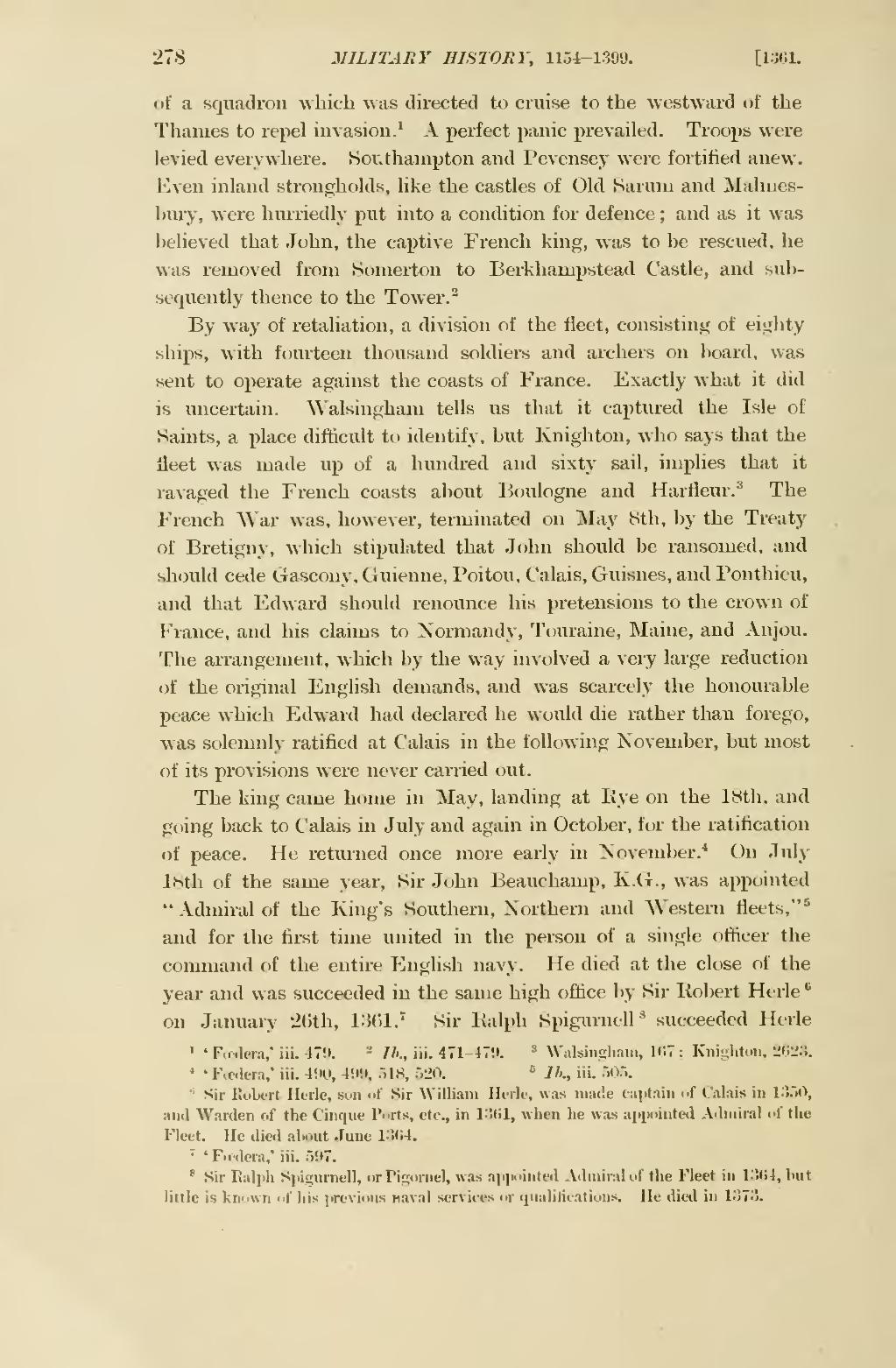of a squadron which was directed to cruise to the westward of the Thames to repel invasion.[1] A perfect panic prevailed. Troops were levied everywhere. Southampton and Pevensey were fortified anew. Even inland strongholds, like the castles of Old Sarum and Malmesbury, were hurriedly put into a condition for defence; and as it was believed that John, the captive French king, was to he rescued. he was removed from Somerton to Berkhampstead Castle, and subsequently thence to the Tower.[2]
By way of retaliation, a division of the fleet, consisting of eighty ships, with fourteen thousand soldiers and archers on board, was sent to operate against the coasts of France. Exactly what it did is uncertain. Walsingham tells us that it captured the Isle of Saints, a place difficult to identify, but Knighton, who says that the fleet was made up of a hundred and sixty sail, implies that it ravaged the French coasts about Boulogne and Harfleur.[3] The French War was, however, terminated on May 8th, by the Treaty of Bretigny, which stipulated that John should be ransomed, should cede Gascony, Guienne, Poitou, Calais, Guisnes, and Ponthieu, and that Edward should renounce his pretensions to the crown of France, and his claims to Normandy, Touraine, Maine, and Anjou. The arrangement, which by the way involved a very large reduction of the original English demands, and was scarcely the honourable peace which Edward had declared he would die rather than forego, was solemnly ratified at Calais in the following November, but most of its provisions were never carried out.
The king came home in May, landing at Rye on the 18th, and going back to Calais in July and again in October, for the ratification of peace. He returned once more early in November.[4] On July 18th of the same year, Sir John Beauchamp, K.G., was appointed "Admiral of the King's Southern, Northern and Western fleets,"[5] and for the first time united in the person of a single officer the command of the entire English navy. He died at the close of the year and was succeeded in the same high office by Sir Robert Herle[6] on January 26th, 1361.[7] Sir Ralph Spigurnell[8] succeeded Herle
- ↑ 'Fœdera,' iii. 479.
- ↑ Ib., iii. 471–479.
- ↑ Walsingham, 167; Knighton, 2623.
- ↑ 'Fœdera,' iii. 490, 499, 518, 520.
- ↑ Ib., iii. 505.
- ↑ Sir Robert Herle, son of Sir William Herle, was made captain of Calais in 1350, and Warden of the Cinque Ports, etc., in 1361, when he was appointed Admiral of the Fleet. He died about June 1364.
- ↑ 'Fœdera,' iii. 597.
- ↑ Sir Ralph Spigurnell, or Pigornel, was appointed Admiral of the Fleet in 1364, but little is known of his previous naval services or qualifications. He died in 1373.
